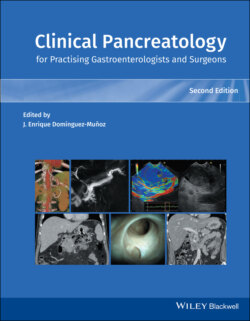Читать книгу Clinical Pancreatology for Practising Gastroenterologists and Surgeons - Группа авторов - Страница 144
What is the Optimal Timing of Refeeding in AP?
ОглавлениеOptimal time of refeeding in AP has been investigated in several trials over the years. The traditional approach is to start oral refeeding after relief of abdominal pain and once serum levels of pancreatic enzymes return to normal. Several studies have questioned this approach. In a prospective and randomized trial our group compared two different protocols of refeeding and two different schedules for refeeding [11]. Four groups of patients with AP were defined according to the refeeding protocol (Table 11.1). The primary outcome of the study was length of hospital stay (LOHS); in addition, gastrointestinal symptoms after refeeding were evaluated. We did not find any significant difference in tolerance or gastrointestinal symptoms when comparing initiation of refeeding early, as soon as bowel sounds were present, or at standard time; when bowel sounds were present, there was no abdominal pain, no fever, decreasing serum lipase levels, and blood leukocyte counts had decreased to below 15 × 109/l. However, we observed a significant reduction in LOHS by two days in the early refeeding group. It seems therefore that refeeding after bowel sounds are present is a safe approach and well tolerated for patients with mild AP. Similar findings were reported from a Chinese randomized clinical trial, where refeeding started once patients felt hungry resulted in shorter LOHS compared to refeeding started at routine times, without any significant difference in adverse gastrointestinal events [12]. A German multicenter trial was unable to demonstrate any difference in LOHS when comparing initiation of refeeding in mild AP at the time self‐selected by patients or when serum lipase levels were below twice the upper limit of normal [3]. Eckerwall et al. [2] compared two protocols of oral refeeding in mild AP: immediate oral feeding ad libitum and traditional management by initial fasting followed by stepwise reintroduction of oral intake. LOHS was significantly shorter in the early refeeding group (4 vs. 6 days; P <0.05). However, this study does not allow differentiation of the individual importance of early reintroduction of refeeding and rapid step‐up protocol. All studies together clearly demonstrate that normalization of pancreatic enzyme levels is not a prerequisite to restart feeding. Early refeeding may shorten LOHS, but this was not consistently observed in all studies. The different definitions used for early and standard time for refeeding may explain this discrepancy to some extent.
Table 11.1 Oral refeeding protocols after acute pancreatitis.
| Protocol | Time of refeeding | Refeeding schedule |
|---|---|---|
| Standard time and stepwise schedule | Standarda | Stepwise increase from a liquid 1200 kcal/day diet, to a soft 1500 kcal/day diet and a solid 1800 kcal/day diet over at least three days |
| Early time and stepwise schedule | Earlyb | |
| Standard time and direct schedule | Standarda | Initial solid diet containing 1800 kcal/day |
| Early time and direct schedule | Earlyb |
a Once the following criteria are fulfilled: bowel sounds are present, no abdominal pain, no fever, no leukocytosis, and decreasing serum pancreatic enzyme levels.
b Once bowel sounds are present and pain in controlled with non‐opioid analgesics.
In our center, oral refeeding after AP is started as soon as bowel sounds are present and abdominal pain is controlled with non‐opioid analgesics.
